 Lyn Turknett,
Co-founder and Co-chair, TLG
Lyn Turknett,
Co-founder and Co-chair, TLG
I can remember my first personal experience of “generational prejudice.” I was about twenty-five and a graduate student. The civil rights movement was in full swing and “my generation” had fought hard for change. I can remember clearly thinking that the “younger generation,” born about 1950, was very focused on themselves, too willing to experiment with drugs, and no longer committed to the good of the whole. Really.
I am no longer a fan of generational differences. For one thing, generational cohort cutoffs are arbitrary. Most of us would agree that a baby boomer born in 1964 – the end of the cohort – would have more in common with a Gen Xer born in 1965 than a boomer from 1945.
It’s also almost impossible to study generational differences. It is not possible to statistically separate age effects, period effects (things that happen in the social environment – like the Watergate scandal or the pandemic), and generational cohort effects.
It’s very hard to effectively study generational effects, and decent research that has been done on generations shows small effects at best.
We are driven to categorize, though, and it’s a short step from categorizing to stereotyping. It’s hard to believe, but I just read in an article on generational prejudice that according to the report from the U.S. Bureau of Labor Statistics, “Boomers did as much job hopping in their twenties as Millennials at that age.” Most research indicates that differences we think we see are primarily due to age, tenure, and career-life progress.
Generational Differences and Stereotypes
One reason I’m bothered by our focus on generations is that I see both age and generational stereotypes – like gender or racial stereotypes – as possibly harmful to our organizational communities. There’s a good HBR article on stereotyping that includes a study that gives me pause. The article reports that even large studies and meta-analyses have found that there are, at best, small differences in generations, but there is solid evidence that people believe there are big differences.
The stereotypes they hold are largely wrong and harmful – and probably most harmful to younger workers.
From the article:
“People’s stereotypes of older workers were largely positive and included words like ‘responsible,’ ‘hard-working,’ and ‘mature.’ Yet older workers themselves worried that others might see them as ‘boring,’ ‘stubborn,’ and ‘grumpy.’ The stereotypes of middle-aged workers were largely positive (‘ethical’), and they believed the other age groups would see them as positive (‘energetic’).
Stereotypes about younger workers were somewhat less positive, however, resulting in a wider range of stereotypes from positive (‘enthusiastic’) to negative (‘inexperienced’). Even so, younger workers believed that others would see them in a more negative manner than they actually did (‘unmotivated’ and ‘irresponsible’).”
What others believe about us matters, and what we think others believe about us may matter even more.
Recommended Readings
Answers to 10 Questions About Generations and Generational Differences in the Workplace
This paper provides an excellent summary of research in the field – research that provides little support for meaningful generational differences. Here are the ten questions the article answers:
- What are generational differences?
- What is the difference between generationalism and ageism?
- What is the evidence for generational differences?
- What is the evidence against generational differences?
- What are the implications of generational differences for the workplace?
- What are the implications of generational differences for organizational policy?
- What are the implications of generational differences for employee well-being?
- What are the implications of generational differences for age diversity?
- What are the implications of generational differences for intergenerational contact?
- What are the implications of generational differences for the future of work?
Bridging Generational Divides in the Workplace
This article provides good advice on tangible ways to help build a more inclusive workplace that leverages all our differences.
Is Generational Prejudice Seeping into Your Workplace?
Read this article to explore why we stereotype, why it’s a problem, and how we might combat age stereotyping.

